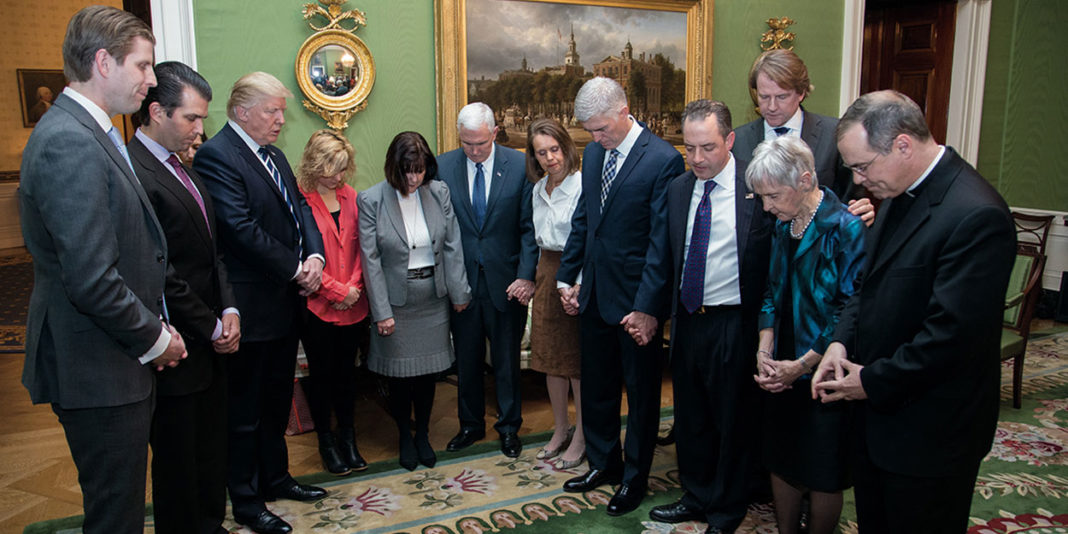With each controversial decision or remark President Donald Trump makes, his evangelical advisers come up against mounting pressure to resign and cut their ties.
“This is why @rev_rodriguez and I have refused to leave the faith advisory council,” Tony Suarez, vice president of the National Hispanic Christian Leadership Conference (NHCLC) tweeted Tuesday, following the White House decision to phase out the Deferred Action for Childhood Arrivals (DACA) program over the next six months.
While Trump pledged to end DACA during his campaign, Suarez and NHCLC president Samuel Rodriguez have spent months lobbying to protect it for the sake of family unity, meeting with the President to defend their case as recently as last week. In their eyes, access to the chief executive—and the opportunity to influence him on political matters important to the church—is worth it, even if the decision doesn’t turn out their way.
For the two dozen or so evangelical leaders who signed on to advise Trump in the campaign and have gone on to enjoy an open invitation to visit him at the White House, what should they do when their convictions as Christians counter what the President says? (This scenario came up as many believers challenged Trump’s “two sides” approach to Charlottesville last month.)
Here’s what several advisers themselves have said about why they remain involved—some evoking the Old Testament prophets speaking before kings as well as Jesus himself dining with tax collectors—and what fellow Christian leaders think about the line between when to offer counsel and when to step away.
Should Christians keep advising a President they disagree with? Responses arranged from “yes” to “no.”
Read more on Christianity Today










